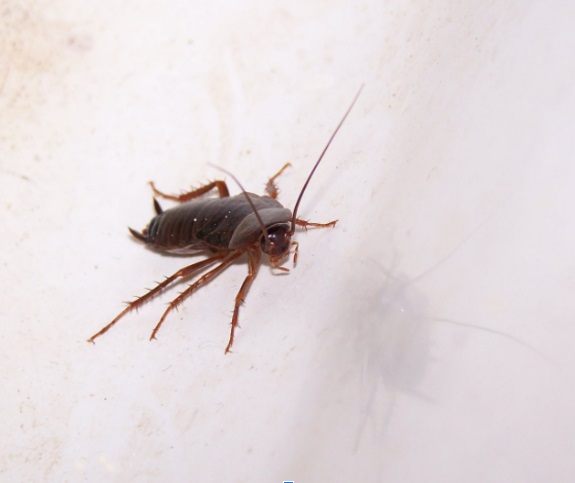Saturated with chemicals and concerned for your loved ones and the environment? It’s time to turn the natural page of pest control. Knowing the basics behind the behavior of pests and using natural techniques will keep your home pest-free without risking your health or the environment.
Understanding Common Household Pests
Before diving into solutions, let’s identify the most common household pests:
- Ants: These tiny invaders are always hunting for food and water. They can quickly infest homes, especially during warmer months.
- Cockroaches: These resilient pests thrive in warm, damp environments. They are often found in kitchens and bathrooms and can transmit diseases. But you don’t only find roaches in Florida! They are in cold climate areas as well.
- Rodents: Mice and rats can cause significant damage to your home and pose health risks. They can chew through wires, contaminate food, and spread diseases.
Natural and Organic Pest Control: A Safer Solution
Here are some effective, eco-friendly methods to keep these pests at bay:
Physical Barriers
The first line of defense against pests is to deny them access to your home. By creating physical barriers, you can significantly reduce the risk of infestation.
- Seal it Up: Caulk cracks and crevices to deny pests entry points. Pay special attention to areas around pipes, wires, and foundation.
- Screened In: Use window and door screens to prevent pests from coming indoors. Make sure screens are in good condition and free of holes.
- Airtight Storage: Store food in airtight containers to deter pests. This includes grains, cereals, and pet food.
Sanitation and Hygiene
Invest in a clean and tidy home to reap the rewards of a pest-free environment. Regular cleaning and proper food storage can keep pests at bay and protect your family’s health.
- Clean Sweep: Regular cleaning, especially in the kitchen and bathroom, can reduce food and water sources for pests. Wipe down counters, sweep floors, and clean up spills promptly.
- Declutter: A clutter-free home is less inviting to pests. Store items in sealed containers and avoid leaving piles of paper or cardboard.
- Compost Wisely: Properly compost food scraps to avoid attracting pests. Use a closed compost bin and turn the compost regularly to prevent odors.
Botanical Pesticides
Tired of harsh chemicals? Discover the natural wonders of botanical pesticides. From essential oils to diatomaceous earth, these plant-based solutions can keep your home pest-free.
- Essential Oil Power: Essential oils like peppermint, lavender, and tea tree oil can repel pests. Create a natural spray by mixing a few drops of essential oil with water and spraying it around your home.
- Diatomaceous Earth: This natural powder can dehydrate and kill pests. Sprinkle it around baseboards, cracks, and other areas where pests may be.
- Insecticidal Soap: A gentle, plant-based soap can effectively control many pests. Spray it directly on pests or on infested areas.
Biological Control
Create a balanced ecosystem in your garden by introducing beneficial insects and nematodes. These natural allies will help you achieve a healthy and pest-free outdoor space.
- Beneficial Bugs: Introduce beneficial insects like ladybugs and praying mantises to your garden to control pests. These insects prey on many common garden pests.
- Nematodes: Tiny worms that can control soil pests. Nematodes can be applied to your garden to control pests like grubs and cutworms.
DIY Pest Control Tips
Ready to take matters into your own hands? Here are some simple DIY tips:
- Create Your Own Repellent: Mix essential oils with water in a spray bottle and apply to affected areas. You can also use vinegar or citrus peels to deter ants.
- Set Traps: Use glue traps or snap traps to catch rodents. Place traps in areas where you’ve seen signs of rodent activity.
- Bait Stations: Place bait stations in areas where you’ve seen pests. Use bait stations that are designed to be safe around pets and children.
When to Call in the Pros
While DIY methods can be effective, sometimes a professional pest control service is necessary. If you’re dealing with a severe infestation or have tried DIY methods without success, it’s time to consult an expert. Look for a company that uses safe products and practices.
The Importance of Early Detection
Early detection is crucial to effective pest control. By identifying a pest infestation in its early stages, you can take swift action to prevent it from spreading and causing significant damage.
Look for visual signs like directly seeing pests or physical evidence such as chewed food packages, damaged furniture, or gnawed wires. Pay attention to droppings or tracks, especially in hidden areas like cabinets or basements. Unusual noises, like scratching or scurrying, particularly at night, can also be a sign of a pest problem. Additionally, strange odors, such as musty smells or a sweet, fermented scent, may indicate an infestation.
To catch infestations early, conduct regular inspections of your home. Pay close attention to the kitchen, checking cabinets, pantries, and countertops for signs of pests. In the bathroom, inspect drains, sinks, and around toilets. Check the basement and attic for signs of rodents, insects, or moisture damage. Don’t forget to monitor your yard and foundation for potential pest entry points.
By being vigilant and conducting regular inspections, you can identify and address pest problems before they escalate. Early detection allows for timely and effective treatment, preventing costly damage and protecting your health.
Conclusion
Utilizing eco-friendly pest control methods will allow you to create a healthier and safer environment for your family and the planet. By understanding pest behavior, staying on top of preventive measures, and utilizing natural solutions, you can effectively manage pest infestations without resorting to harmful chemicals. Remember, a clean and well-maintained home is the best defense against pests. So, let’s work together to build a more sustainable future, one pest-free home at a time.
